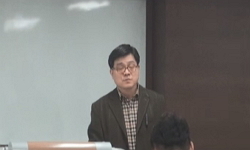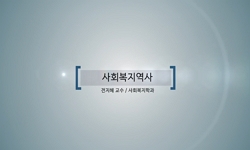This paper investigates the collocation of the Korean adjective chakhan ‘good-natured’ with a large variety of nouns referring to [-HUMAN] entities. This non-literal collocation of chakhan is categorized into four groups based on the meaning of ch...
http://chineseinput.net/에서 pinyin(병음)방식으로 중국어를 변환할 수 있습니다.
변환된 중국어를 복사하여 사용하시면 됩니다.
- 中文 을 입력하시려면 zhongwen을 입력하시고 space를누르시면됩니다.
- 北京 을 입력하시려면 beijing을 입력하시고 space를 누르시면 됩니다.

“착한”의 연어현상에 대한 사회언어학적 접근 = A Sociolinguistic Approach to the Collocational Phenomenon of “Chakhan”
한글로보기https://www.riss.kr/link?id=A100106134
- 저자
- 발행기관
- 학술지명
- 권호사항
-
발행연도
2014
-
작성언어
Korean
- 주제어
-
등재정보
KCI등재
-
자료형태
학술저널
- 발행기관 URL
-
수록면
439-458(20쪽)
-
KCI 피인용횟수
1
- DOI식별코드
- 제공처
-
0
상세조회 -
0
다운로드
부가정보
다국어 초록 (Multilingual Abstract)
This paper investigates the collocation of the Korean adjective chakhan ‘good-natured’ with a large variety of nouns referring to [-HUMAN] entities. This non-literal collocation of chakhan is categorized into four groups based on the meaning of chakhan in each collocation. Although collocative chakhan produces different senses in different groups, chakhan in every collocation has at its core a sense of being ‘considerate of others’ which is also implied in the literal meaning of chakhan. Its other different senses come from either the meaning of the nouns it collocates with, or the context in which the collocation appears. The productive use of non-literal chakhan reflects the change in people`s interpretation of chakhada over the years: From the late 1990`s to mid-2000s, it was interpreted to many people as expressing negative human attributes not adequate to survive in the age of unlimited competition and relentless meritocracy. However, as the criticism of the neo-liberalism and the claim for economic democratization have become stronger since 2006 and especially after the global financial crisis in 2008, chakhada has been reinterpreted as a positive value promoting co-existence, sharing and co-prosperity. Extensive use of the chakhan collocation reflects that there is a move away from the current neo-liberalism to a new system which emphasizes sharing and growing together. (Youngsan University)
참고문헌 (Reference)
1 김명광, "형용사 ‘착하-’의 구조 변화에 대한 일고찰" 한국언어문화교육학회 5 (5): 117-137, 2009
2 김철규, "한국어 형용사 ‘착한’의 연어(collocation)에 관한 단기 통시적 고찰" 213-233, 2012
3 정운찬, "한국경제의 미래와 동반성장"
4 이정우, "한국경제와 공공영역"
5 바람을 가르다, "착한글래머 엄상미, 여고생 벗긴 불편한 진실?"
6 정민호, "착한 연애: 아무도 울지 않는 해피엔딩 연애법" 마음세상 2013
7 공지영, "착한 여자" 한겨레신문사 1997
8 모기룡, "착한 사람들이 이긴다" 한빛비즈 2013
9 전진한, "착한 비자금은 아내를 춤추게 한다"
10 유신재, "착한 몸매 착한 커피…착착 감기는 그 말 참 ‘착하네’"
1 김명광, "형용사 ‘착하-’의 구조 변화에 대한 일고찰" 한국언어문화교육학회 5 (5): 117-137, 2009
2 김철규, "한국어 형용사 ‘착한’의 연어(collocation)에 관한 단기 통시적 고찰" 213-233, 2012
3 정운찬, "한국경제의 미래와 동반성장"
4 이정우, "한국경제와 공공영역"
5 바람을 가르다, "착한글래머 엄상미, 여고생 벗긴 불편한 진실?"
6 정민호, "착한 연애: 아무도 울지 않는 해피엔딩 연애법" 마음세상 2013
7 공지영, "착한 여자" 한겨레신문사 1997
8 모기룡, "착한 사람들이 이긴다" 한빛비즈 2013
9 전진한, "착한 비자금은 아내를 춤추게 한다"
10 유신재, "착한 몸매 착한 커피…착착 감기는 그 말 참 ‘착하네’"
11 배상복, "착한 가슴은 없다"
12 싱글즈, "착하다는 말, 왠지 싫다" Singles 2009. 6. 더북컴퍼니
13 카야마 리카, "착하게 살아도 괜찮아: 독한 세상에서 착하게 살아남는 법" 모벤스 2011
14 Sandel, M., "정의란 무엇인가" 김영사 2010
15 임홍빈, "우리말에 대한 성찰" 태학사 2005
16 이경희, "안철수의 착한 분노: 안철수가 말한 안철수, 심리학자가 분석하다" 예문 2012
17 신동엽, "선하고 의로운 사회가 진정 강한 사회"
18 조영민, "상생과 나눔의 ‘착한 우체국’이야기"
19 우성규, "문재인의 ‘착한 경제’, 사회적 가치 기본법 제정 토론회 개최"
20 이종선, "멀리가려면 함께 가라" 갤리온 2009
21 "매일경제 경제용어 사전"
22 김종갑, "대중의 시, 착한 몸매, 이기적인 몸매, 미친 몸매: 미칠 정도로 아름다운 세상을 위하여"
23 "다음 백과사전"
24 장선우, "나쁜 영화. 장남경, 권혁신 주연. 미라신 코리아 제작. 118분"
25 Ehrhardt, U., "나쁜 여자가 성공한다" 인디고 2000
26 가토 다이조, "나쁜 아이로 키워라" 이다미디어 2001
27 강동화, "나쁜 뇌를 써라" 위즈덤하우스 2011
28 변태섭, "나쁜 뇌가 균형적인 삶을 만든다"
29 김기덕, "나쁜 남자. 조재현, 서원. 주연. LJ FILM Light & Joy 제작. 100분"
30 Rock, J., "나쁜 남자 12종" 이채 2006
31 "국립국어원 표준국어대사전"
32 사설, "건강사회 만드는 ‘착한 송년회’ 바람"
33 이현근, "개념구조에 의한 단어의 다의성 연구" 8 : 101-123, 1992
34 서상준, "[커버스토리] 은행을 알아야 재테크서 이긴다"
35 한주원, "[착한 가슴 이야기] (1) ‘자흉침’ 가슴성형 연예인들이 즐기는 이유"
36 유정인, "[복지국가를 말한다](1부)② 과부하 걸린 한국의 가족"
37 김철규, "The Metaphorical Meanings of the Korean Adjective chakhan in Korean Newspapers from 1990 to 2011" 담화·인지언어학회 20 (20): 89-109, 2013
38 Firth, J., "Papers in Linguistics 1934-1951" Oxford University Press 1951
39 이지은, "20년 리뷰"
동일학술지(권/호) 다른 논문
-
Assessing Second Language Grammar Using Cognitive Diagnostic Assessment Method
- 한국현대언어학회
- ( Yeon Sook Yi )
- 2014
- KCI등재
-
- 한국현대언어학회
- 이해윤 ( Hae Yun Lee )
- 2014
- KCI등재
-
Subject Inversion Constructions and Third Factor Principles
- 한국현대언어학회
- ( Yang Soon Kim )
- 2014
- KCI등재
-
3~5세 정상 발달 아동의 모방 발화에 나타난문장 정확도와 비유창성 연구
- 한국현대언어학회
- 김태경 ( Tae Kyung Kim )
- 2014
- KCI등재
분석정보
인용정보 인용지수 설명보기
학술지 이력
| 연월일 | 이력구분 | 이력상세 | 등재구분 |
|---|---|---|---|
| 2026 | 평가예정 | 재인증평가 신청대상 (재인증) | |
| 2020-01-01 | 평가 | 등재학술지 유지 (재인증) |  |
| 2017-01-01 | 평가 | 등재학술지 유지 (계속평가) |  |
| 2013-01-01 | 평가 | 등재학술지 유지 (등재유지) |  |
| 2010-01-01 | 평가 | 등재학술지 유지 (등재유지) |  |
| 2008-01-01 | 평가 | 등재학술지 유지 (등재유지) |  |
| 2005-01-01 | 평가 | 등재학술지 선정 (등재후보2차) |  |
| 2004-01-01 | 평가 | 등재후보 1차 PASS (등재후보1차) |  |
| 2002-07-01 | 평가 | 등재후보학술지 선정 (신규평가) |  |
학술지 인용정보
| 기준연도 | WOS-KCI 통합IF(2년) | KCIF(2년) | KCIF(3년) |
|---|---|---|---|
| 2016 | 0.39 | 0.39 | 0.37 |
| KCIF(4년) | KCIF(5년) | 중심성지수(3년) | 즉시성지수 |
| 0.36 | 0.38 | 0.694 | 0.27 |





 KCI
KCI KISS
KISS





